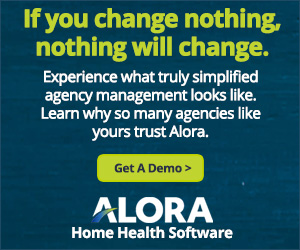
22 Nov Selecting the best caregiver for end-of-life care
A guide for home health care agencies providing end-of-life patient care
One of the most important decisions you will make as a home healthcare agency, health professional, or family member when considering end-of-life care is who you will hire as a caregiver. Choosing the ideal caregiver is essential because they not only give medical assistance but also need to understand the emotional and spiritual aspects of the journey.
At a time when caregiver retention is a struggle, consider utilizing this guide when choosing the best caregivers to hire. It will help you consider the person’s character, their credentials, and how these come into play with the needs of the individual receiving the care.
Understanding the Needs of the Patient is Most Important
To know who would make the best caregiver for a person near the end of their life, let us consider what the patient requires:
- What health problems are they suffering from?
- Is the caregiver familiar with any treatments or medicines being used?
- Does the caregiver understand the particular health concerns of this patient?
- What are the individual’s fears, hopes, or desires during this time in their life?
This evaluation is a narrative: comprehending the person and their way of life. It includes taking the essence of who they are, their history, trials, and triumphs, and matching them with someone who can meet them where they are.
Qualities to Look for in an End-of-Life Caregiver
The significance of a caregiver’s traits is vital to consider when placing a loved one’s welfare in someone else’s hands. There are a few different qualities to look for in this person, as it’s not just about how much medical knowledge they have.
First and foremost, you should look for a caregiver with empathy, and this should be at the top of the checklist as they will need somebody who understands concerns with death and dying, which is why it’s so important that the caregiver also has good communication skills.
However, communication is not just a skill; it’s an art, especially in end-of-life care situations. The selection process, therefore, should use instances of caregivers displaying good communication skills as an overall baseline.
Assessing Caregiver Credentials
The caregivers in question should be professionally qualified within the medical field to act as a compass in dealing with various medical challenges. Such caregivers understand the medical conditions surrounding the dying process so they can make the right calls and assist families in making day-to-day decisions if needed.
Caregiver assessment requires equally as much emphasis on references that can give evidence of past performance by the individual. It is not just about what is written on paper but about what they have achieved that brings impact.
Practical Considerations for End-of-Life Care
One factor many people need to pay attention to is schedules. Still, we aren’t talking just about the number of working hours but rather the availability and adaptability concerning situations where round-the-clock care is necessary. The power of presence is demonstrated through real-life situations in which the existence of a caregiver may matter for just a moment or for the whole day. However, it is more than just performing a routine; it entails embracing the tough times and easy moments encountered along this trip.
Let’s also be realistic; you are an agency, so something you will need to factor in is the budget of your company, but also the budget of the family. It is imperative for families struggling with end-of-life issues to be able to pay for the care of their loved ones.
Therefore, assistance programs that may ease these pressures should be explored. This will allow your agency to function financially without posing any risk while allowing you to remain compassionate and not appear to ‘only be in it for the money.’ (Of course, we all know that’s not the case!)
Is the Caregiver Concerned with Creating a Supportive Environment?
Any caregiver in question should be concerned with creating a conducive atmosphere for their clients who are nearing the end of their life. Such a case entails more than just networking with the doctors but with the family to offer an integrated strategy that encompasses physical health needs as well as psychological ones.
First, let’s talk about the relationship between caregivers and health providers. The care is about making a voyage together in which communicating and collaborating are essential grounds for better care. In other words, visualize the situation when carers smoothly cooperate with health professionals, sharing thoughts and observations and co-creating care plans. These are instances where a coordinated effort culminates into much more than just a caregiving exercise; it translates into a holistic service. When both parties acknowledge such abilities as they work together, people get the best care possible once those abilities match.
In this regard, concerning issues, it is acknowledged that support is required for those and their whole families. However, it goes beyond providing care; it involves implementing approaches intended to preserve the welfare of those who support their relatives in difficult moments.
There is no one-size-fits-all idea for emotional support, as it requires understanding the dynamics within each family. Overall, the caregiver will need to possess wholesome qualities like the ability to observe and interact empathetically, understand what the family and patient are trying to communicate, and be able to judge a situation and execute the best plan for that patient each day.
The Take-Away
In short, we acknowledge that caring for someone who is about to die means understanding the unique requirements of every person concerned. This entails going further than just the date contained in records or care management tools like hospice or home health software and caregiver checklists, but further into a plan that includes their emotions and the issues they face during their experience. Our focus should be on the characteristics that make caregivers not just provide a service but ones who are knowledgeable and have good communication skills.
Creating an ideal environment may be difficult, but it should involve the caregivers, healthcare professionals, and families. Here, they have focused on a neglected part of the process since it is equally important to foster family, health, and wealth. And at the end of it all, that’s what’s most important.
Author’s Note: Views, information, and guidance in this resource are intended for information only. We are not rendering legal, financial, accounting, medical, or other professional advice. Alora disclaims any liability to any third party and cannot make any guarantee related to the content.
Additional Home Health Agency Staff Retention Reading:
- Five facts about caregiver burnout that will startle you
- Creating magnetic job postings to attract nurses to your agency
- Preventing caregiver turnover in your home health agency
- Ten best ways to show caregiver appreciation
- Dealing with the shortage of caregivers in home healthcare
- Caregiver training – six key practices to get nurses off to a good start
- Work/life balance tips for clinicians

Alora’s home health software solution is ideal for agencies operating in both skilled and non-skilled care. For more than 16 years Alora has simplified workflow for countless agencies that serve both home health and hospice care patients during all stages of care, while fostering growth and efficiency. Building a strong agency culture where caregivers enjoy their work starts with making their job as simple as possible. Alora makes everything involved with day-to day workflow easier, so agencies can reduce turnover and thrive with simplicity, allowing inspired caregivers to focus on patient care.



No Comments